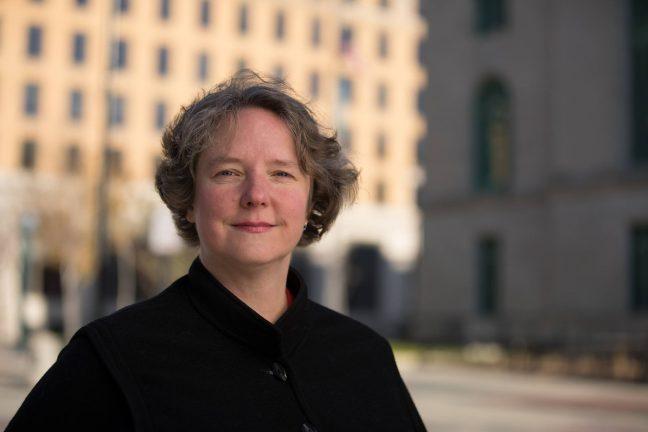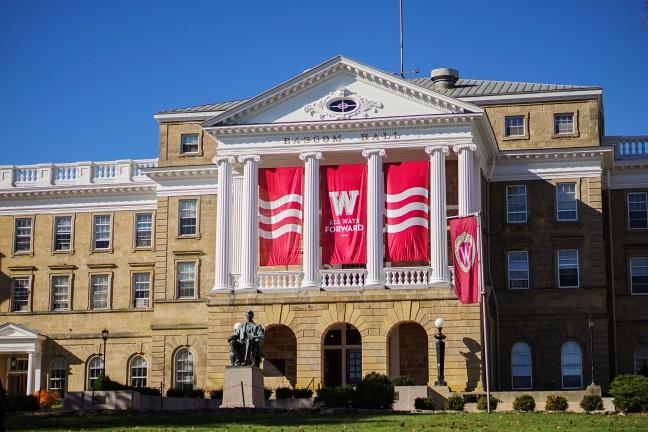Madison is often thought to be the progressive epicenter of a state which was once heralded for its forward-thinking spirit. Home to both the state’s largest university and its central government, the advancements in academia and policy that happen here have the power to drive statewide progress. And essential to that ripe opportunity for progress are the voices who go against the grain — those who reject the status quo and pridefully condemn the adequate to pursue what others won’t.
Paul Soglin has been Madison’s mayor for a combined 22 years, and while in that time he has surely gained mayoral experience, two decades have stagnated his vision of what Madison can be. His campaign centers primarily around his record, he’s said himself why voters should choose him. “The answer is leadership — experience and leadership — and demonstrating the ability to solve problems.”
That sounds nice, but experience in office alone should not be what gives Soglin a decided edge. Especially not when his opponent, Satya Rhodes-Conway, has spent six years on City Council, where she represented the city’s 12th district and served on subcommittees committed to improving Madison’s food security, budget and public transportation. When she’s not working on the Council to submit recommendations for the city’s improvement, she’s absorbing recommendations of a different kind, this time from mayors nationwide.
Municipal services deserve to thrive, but they can’t without proper funding
As managing director of the Mayors Innovation Project, Rhodes-Conway traveled from state to state, meeting with mayors in cities similar to Madison to learn the kinds of initiatives the city could be pursuing that they currently aren’t. Her vantage point affords her the ultimate qualification — she knows how to move the city forward within the governing bodies that hold such power, but she’s curious enough to understand that the work done there only lays the groundwork for the next round of improvements.
Rhodes-Conway traveled to Madison from Los Angeles for a summer internship and fell in love with the community and its people, so she stayed. She has a deep appreciation for our city, and as such she wants to see it fulfill its potential — and to her that means embracing policies that haven’t had their fair share of time in the limelight.
Rhodes-Conway is an enormous proponent of implementing Bus Rapid Transit in the region to make citywide resources accessible to all. She’ll advocate for environmental improvements predicated on citywide climate change research. She’s preached for creating a more diverse array of affordable housing options before pursuing broader economic development programs. Each of these policy positions are aggressive, and that’s precisely the kind of leadership style Madison deserves. And perhaps most importantly, she understands she can’t attain these goals from the comfort of her office, which is why she supports collaborative initiatives connecting her office to the city council and Madison school board. She knows she can’t fall prey to an assumption of omniscience — she recognizes the value of discourse and embraces the opportunity to learn from others.
Madison mayoral race sparks conversations about a need for new leadership
Rhodes-Conway also understands issues of identity politics in a way Soglin doesn’t.
“This is not a racist city,” Soglin said in response to Rhodes-Conway highlighting structural racism’s presence in Madison. “You are not racists. The people of this city are not racists. This is a caring compassionate city. There must be accountability in assertions politicians make.”
Rhodes-Conway, meanwhile, gets it. She emphasized that institutions can still be racist without the city’s people being labeled the same, and that “trying to deny the problem makes it harder for us to address the problem.” This intersectional perspective shouldn’t be a debatable platform perspective, as Soglin makes it out to be, it should be accounted for in each policy decision that crosses the desk of the mayor.
“Folks should not be asking two white people whether or not Madison is a racist city,” Rhodes-Conway said. “You should be asking people of color who live here and engage people every day.”
There are Madison’s wants, and there are Madison’s needs. Madison should want a leader who looks around and is simultaneously dissatisfied and optimistic. Madison needs a leader equipped to tackle the issues Soglin won’t, and who will do so through a collaborative effort that takes into account the voices of those immediately impacted by policy.
The Editorial Board serves to represent the voice of The Badger Herald editorial department, distinct from the newsroom, and does not necessarily reflect the views of each staff member.













